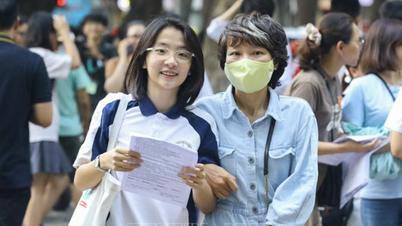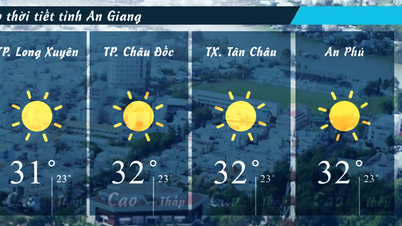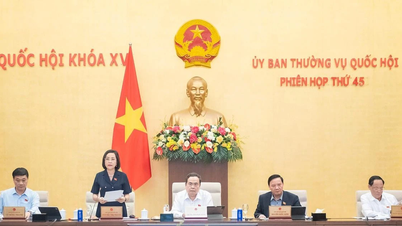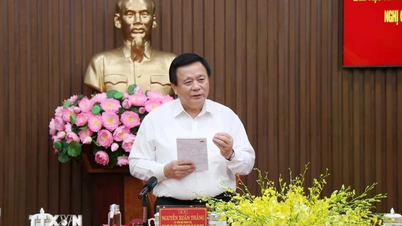According to Ms. Dinh Thi Huong, a Literature teacher of the Tuyensinh247 system, this year's Literature entrance exam has changed significantly compared to previous school years, all the materials are taken from outside the book.
In previous school years, the Hanoi exam was usually divided into two parts: Part I required students to read and understand a passage of poetry/story/… appearing in the 9th grade literature book; Part II required students to read and understand a passage and write a social argumentative essay. This year’s exam has made a big change, the entire exam is not based on material from the book, and consists of two parts: Reading comprehension 4.0 points; Writing 6.0 points.

Predicted score distribution of Literature exam.
According to Ms. Huong, the most prominent mark in this year's exam is the content of the excerpt from the poem "Happiness" (Giang Nam) which is very close to the life of students and families, expressing the simple dreams and simple joys of each person after the war. Especially at the present time when people promote the value of family and simple happiness after social upheavals, this exam is even more topical and has profound humanistic meaning.
In general, the exam closely follows the knowledge in the program, preventing rote learning and memorization. At the same time, the exam focuses on students' understanding of familiar but still highly topical issues. The content of the questions revolves around reading and writing skills, and the ability to analyze poetic texts.
Ms. Nguyen Ngoc Mai, a literature teacher at Newton Middle and High School, assessed that this year's Literature exam was quite "easy" and within the students' ability.
In the reading comprehension section, the questions have more suggestions, so students do not have to spend time thinking about how to answer. In particular, question number 5, which is worth 1 point, has a simple, easy-to-do request: "Please share a simple happiness of yours". When answering the question, the student who can explain why he or she cherishes that happiness will get the maximum score.
However, the female teacher said that the test was too easy, making it difficult to classify students. "When the test is not highly differentiated, it will be disadvantageous for good students," Ms. Mai shared.

Candidates happily left the Literature exam room.
Sharing the same opinion, Ms. Le Thi Phuong (a teacher specializing in exam preparation in Hanoi) commented that the exam questions closely follow the innovative spirit of the program, suitable for the psychology and age of students.
The poem "Happiness" inspires students to write about patriotism. Especially the memorable events of the country in recent days are the closest and best data for students to use as evidence.
In Part I, Ms. Phuong assessed that the questions were arranged delicately, according to cognitive and thinking levels, and had high differentiation. Students did not have difficulty with the question about identifying poetic forms, but students with better academic ability were able to meet the requirements of the following questions.
The question requiring analysis of four verses in relation to the context of the poem’s creation (question 3) is the most difficult in the Reading Comprehension section. Students must analyze and feel the author’s feelings and emotions, so it is easy to miss ideas. Not to mention, good answers must mention the father’s deep pride in the poem after the country’s liberation.
"The test is good and easy, so many candidates will definitely get a score of 8 or higher. This unintentionally makes the race to enter grade 10 even more intense. Students must try harder in the following subjects - Math and Foreign Languages," she said, suggesting that next year Hanoi should create a test with even higher differentiation.
Source: https://vtcnews.vn/giao-vien-de-van-qua-de-do-phan-hoa-thap-khien-cuoc-dua-lop-10-cang-gat-gao-ar947561.html




























































































![[OCOP REVIEW] Tu Duyen Syrup - The essence of herbs from the mountains and forests of Nhu Thanh](https://vphoto.vietnam.vn/thumb/402x226/vietnam/resource/IMAGE/2025/6/5/58ca32fce4ec44039e444fbfae7e75ec)







Comment (0)